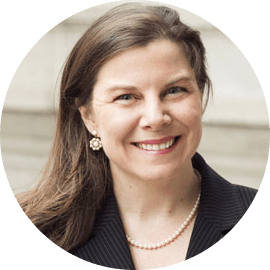My goal as a financial planner is to help clients live the happiest and most fulfilled life possible. As their team, we ensure they have enough money to be financially secure for the rest of their lives, and because of this, few worry about running out of money. As a result, our clients enjoy financial peace of mind and a high level of satisfaction with their lives. However, the relationship between wealth and happiness is not as strong as commonly thought.
Money Makes You Happier… But Not as Much as You Think
Scientists find that money can only make people so happy. The most famous research on the correlation between money and happiness comes from a study by two Nobel Laureates, Daniel Kahneman and Angus Deaton (2010). They found that emotional well-being initially rises with income, but once annual household income reaches $75,000, happiness remains nearly unchanged. Essentially, if you are not happy earning $75,000, you will not be much happier making more. However, their research did not measure the impact on happiness of how that income is spent.
The Way You Spend Money Matters
Research from San Francisco State University shows that experiences bring people more happiness than material objects, with individuals having far more satisfaction when purchasing experiences over physical possessions.
I have first-hand experience with this; two summers ago, we invested in scuba certifications for our children scuba-certified. My husband and I took the classes to refresh our diving skills, and it was one of our best family experiences. When the kids graduated, I surprised them with a trip to Grand Cayman. I have no idea what the best memory was because there were so many, although I will never forget the burst of happiness and love as I watched my daughter’s joy doing flips underwater, pretending she was Ariel the mermaid.
Recently, we splurged again. This time, we purchased the latest Honda Pilot. I was so excited to buy this car six months ago, but now it barely registers as something special (I am hoping that giving her a good cleaning will re-ignite my car love, but I doubt it will).
It turns out that I am not the only one who “gets used to” new possessions. The initial joy of buying something, such as an iPhone, fades as we become accustomed to seeing it every day. But, on the other hand, learning French and traveling to Paris, attending a cooking class with a friend, or hiking the Appalachian Trail are experiences that become part of your identity and create memories that bring you joy long after.
MasterCard keenly picked up on this financial-behavior reality with the “Priceless” advertising campaign: “There are some things money can’t buy. For everything else, there’s Mastercard.” Mastercard’s slogan, launched over 25 years ago, managed to tug at our heartstrings and remind us of what is essential in life. MasterCard was there to purchase the baseball tickets, hot dogs, and soda, but the most important thing was spending time with your family at the game. It turns out that MasterCard was spot-on in identifying what makes people most joyful.
At the beginning of the year, many of us strive to do some spring cleaning of our finances and budget. I recently did this and switched around where I will be spending money. Of course, I will be maxing out my 401K account at work, but, once I have hit my savings target, I will be using the excess money to have memorable experiences with my family, and buying fewer material items that I do not need, anyway. I hope that you do the same!

